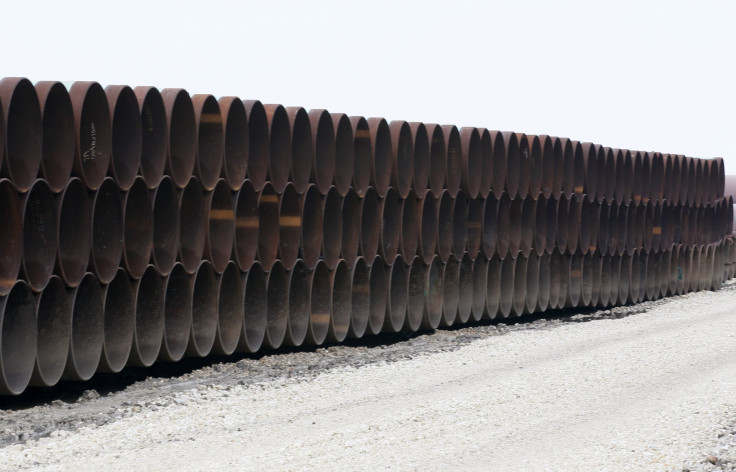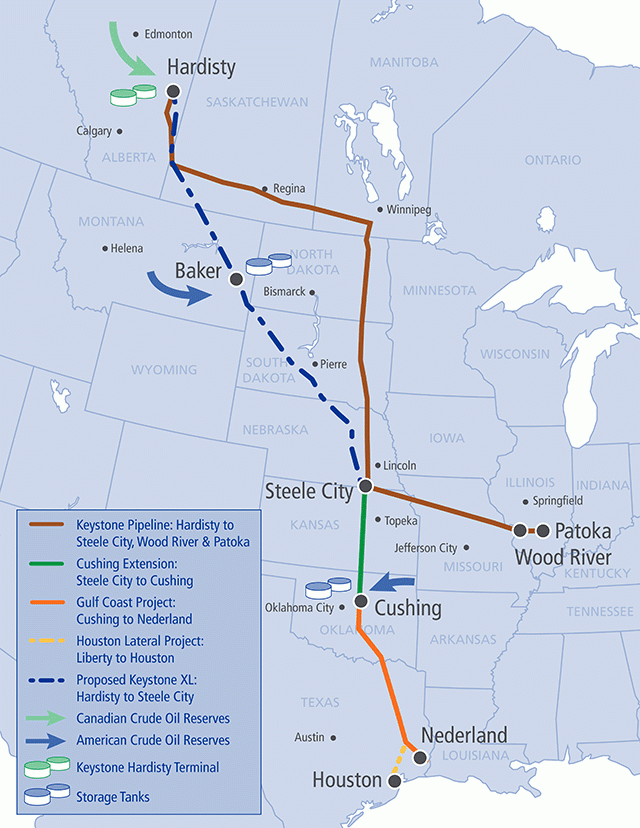Keystone XL Pipeline Bill Clears Congress, But Obama Is Vowing To Veto

President Barack Obama is one step closer to ending the debate on the much-disputed, long-delayed Keystone XL oil pipeline. The president Wednesday was expected to veto a pro-pipeline bill approved by Congress, a move that could hasten his ultimate decision to kill or greenlight the project.
The Republican-controlled Congress approved the Keystone XL bill late Wednesday with the House voting 270-152 in favor. At least 290 "yes" votes (two-thirds) will be needed to override a presidential veto.
The Senate first passed the bill in late January. The legislation includes an amendment that declares climate change “is real and not a hoax,” though the Senate rejected a follow-on measure to clarify that humans are causing climate change.
Obama has vowed to reject the measure as interference with the regulatory review of the pipeline now in process. Pipeline watchers say his veto would “build momentum” toward a final verdict on the plan, potentially by the end of this month, according to background conversations. The president has 10 days to exercise his veto authority.
TransCanada Corp., Keystone XL’s builder, first proposed the Canada-to-Texas project in 2008. More than six years later, the permitting process has been mired in legal and regulatory delays while the pipeline’s estimated costs have nearly doubled to $8 billion. Since the project crosses international borders, the State Department must decide if it serves the “national interest,” with the president having the final word.

TransCanada and the pipeline’s backers insist that it would benefit the country, pointing to the thousands of construction jobs it would create and the 830,000 barrels of North American oil a day it would deliver to U.S. refineries. Environmental groups and landowner activists argue the opposite. They say the pipeline would put critical waterways and ecosystems at risks of major oil spills and would further the exploitation of high-carbon Canadian oil sands crude to the detriment of the global climate.
Obama signaled he would reject the project if the State Department found it could “significantly exacerbate” greenhouse gas emissions.
The State Department’s January 2014 analysis said Keystone would have a limited effect on the climate, since Canadian oil companies will develop oil sands crude regardless. But that study assumed oil prices would remain above $75 a barrel. In the past six months, crude prices have plunged more than 50 percent to around $50 a barrel, challenging the economics of expensive Canadian oil projects.
Earlier this month, the Environmental Protection Agency urged the State Department to consider low oil prices in its final review of the pipeline. The agency argued that, in a cheap oil scenario, Canadian companies probably wouldn’t produce as much oil without a cheap way to move it to market, such as a pipeline like the Keystone XL, the EPA said in a Feb. 2 letter.
“Until ongoing efforts to reduce greenhouse gas emissions associated with the production of oil sands are more successful and widespread … development of oil sands crude represents a significant increase in greenhouse gas emissions,” Cynthia Giles, the EPA’s enforcement chief, told State officials.
Environmental groups hailed the EPA letter as a clear indicator that Obama would ultimately reject the pipeline. “In linking the project to an expansion of the [oil sands] and a significant increase of greenhouse gas emissions, the EPA … exposes the project’s Achilles’ heel,” Anthony Swift, an attorney with the Natural Resources Defense Council, said on a press call earlier this month. “EPA drove what may prove to be the final nail in the coffin for the Keystone XL.”
TransCanada on Wednesday criticized the EPA’s comments on its proposed pipeline. “We don’t believe any single pipeline causes production of oil to accelerate,” Russ Girling, TransCanada’s CEO, said on a press call. He said the company rejects "the EPA’s inference that at lower oil prices, Keystone XL will increase the rate of oil sands production and greenhouse gas emissions.”
© Copyright IBTimes 2024. All rights reserved.





















